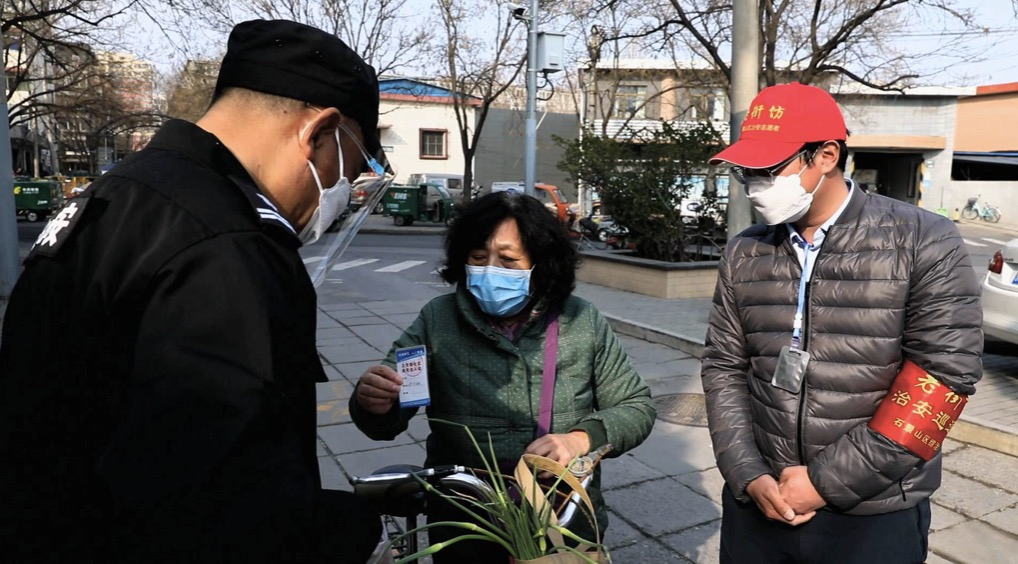
A woman shows her special ID card permitting her entry to her residential compound. (Photo: CGTN)
It's hard to think of an aspect of life that hasn't been impacted by COVID-19.
When the deadly virus first appeared in Wuhan, it quickly led to factories and offices in the city itself and throughout Hubei Province being shut down. Schools were also closed and businesses were prevented from running as usual.
Three months on, it has even changed the way people across China enter and leave their homes.
In towns and cities nationwide, sub-district offices have been called into action to implement strategies for helping contain the spread of the virus in local communities.
There are banners with slogans reminding people to wear masks and wash their hands frequently. Workers wait to check the entry pass and temperature of residents returning from work or shops, and cars are searched upon entry to make sure that only those who are registered are coming into the compound.
Residents welcome such measures, appreciating that they're designed to keep the whole country safe. Many have even become volunteers, providing vital support for neighborhoods in need.
Qi Xingyuan community in Beijing is home to 1,018 households, comprising almost 3,000 residents. Under normal circumstances, 12 staff members from the sub-district office work there. However, since the virus broke out, they've struggled to cope with the additional work, so 50 volunteers have stepped in to help.
As delivery drivers may no longer enter the compound, these volunteers have become a lifeline for elderly and incapacitated residents who may have trouble leaving their home to pick up supplies or take out their trash. They're also providing a vital service for quarantined residents who are not allowed out of their apartments for 14 days, following their return to Beijing.
The volunteers aren't only helping out with chores; many feel it's also up to them to ease some of the anxieties people feel in these uncertain times.
Statistics from Xinhua News Agency reveal that at the start of this year, the number of registered residents aged 60 or above in Beijing exceeded 3.8 million. The elderly are understandably more concerned about the potential effects of the virus, and so many volunteers put in time and effort making sure they feel safe and aren't worrying too much.
At the gate to one community, volunteers hand out smiley face stickers to help brighten up masks, and offer words of encouragement and a friendly face when residents return home.
As night falls in Liu Heyuan South community, a member of staff from the sub-district office is starting his shift. Yu Xiongbo counts the lights in the buildings to see how many people are at home. If there's no light showing in an apartment where he knows an elderly or disabled person lives, he'll pay them a visit to make sure everything is okay. He's been helping out in this way ever since Chinese New Year's Eve in January.
Many residents still haven't been able to return to Beijing, or have decided to stay with their families elsewhere until things get back to normal, so Yu spends a lot of time double-checking and calling families to make sure everyone is safe and well.
The concerted efforts of the sub-district offices and local volunteers ensure that all residents in their communities stay safe. From helping the elderly, to making sure quarantined residents get everything they need, to just trying to lighten the mood, the display of community action is a timely reminder of the power of the human spirit to triumph over adversity.


